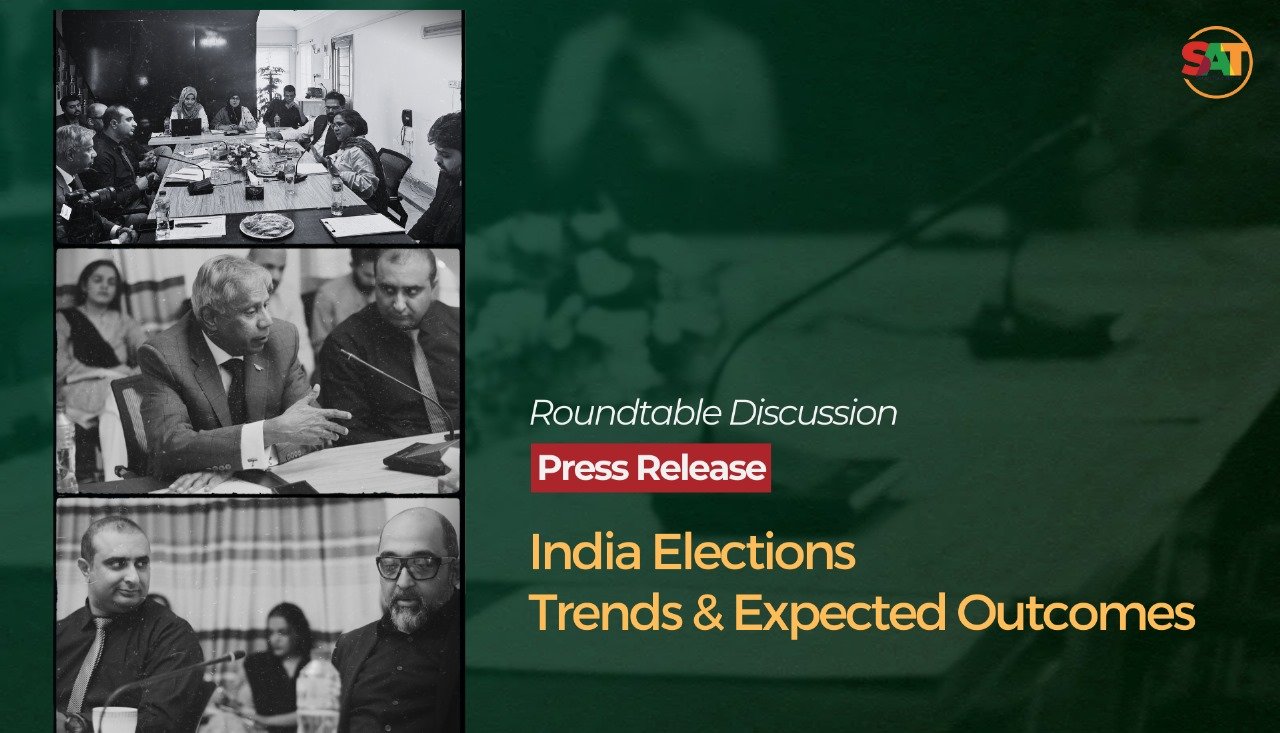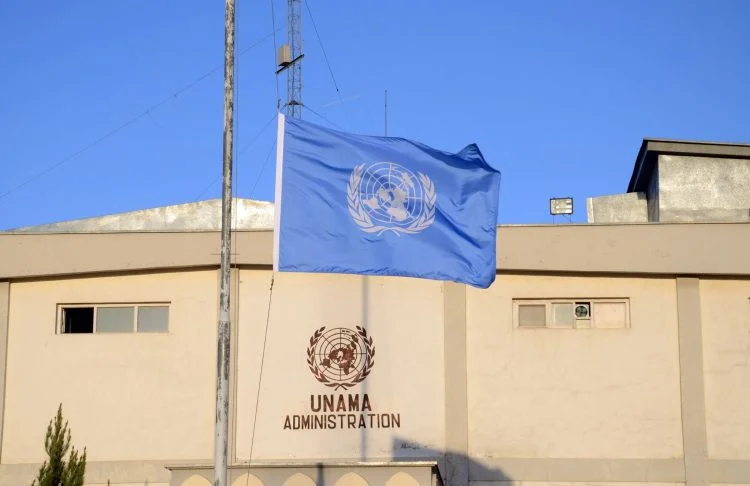South Asia Times (SAT) successfully organized an engaging Roundtable Discussion on India’s Lok Sabha Elections, titled “Halfway Through – Trends, Expected Outcomes, and What a New Government in India Will Mean for South Asia and the World.” Held on May 28, 2024, at South Asia Times (SAT) in Islamabad, the event brought together esteemed experts, policymakers, and young scholars to discuss the ongoing Lok Sabha elections in India, their anticipated outcomes, and the potential regional and global ramifications.
Also Read: Lok Sabha Elections in India: Complexities and Challenges
Emphasizing the critical importance of understanding India’s electoral trends and their broader implications for South Asia Mr. Salman Javed, Director SAT, opened the session and welcomed the esteemed discussants. Ms. Haleema Khalid, Editor and Research Lead SAT, moderated the discussion, ensuring a thorough exploration of key sub-themes.
Dr. Khurram Abbas, Director of the India Study Center (ISC) at the Institute of Strategic Studies, Islamabad (ISSI), provided a detailed analysis of the 2024 India’s Lok Sabha elections trends compared with past elections. He highlighted how the North-South divide in India is being reshaped and discussed the strategic narratives employed by the Bharatiya Janata Party (BJP) and their impact on voter behavior.
Group Captain (r) Sultan Mehmood Hali, defense analyst and author, examined the portrayal of Pakistan in Indian media during the election campaign and its influence on public sentiment and political discourse in India. He underscored the role of media in shaping cross-border perceptions and the implications for Indo-Pak relations.
Ambassador Naghmana Hashmi, former Ambassador of Pakistan to China, the European Union, and Ireland, discussed the civilizational aspect of India-Pakistan relations. She explained that India’s non-acceptance of Pakistan is due to deep-rooted civilizational differences, reflecting sentiments across India, not just those of Modi. Ambassador Naghmana suggested that Modi will likely continue his Hindutva policies if he secures a 2/3rd majority. She concluded by noting that countries, not foreign policies, fail.
Mr. Moharraf Zaidi, an analyst, author, and co-founder of Tabadlab, deliberated on the prospects of trade resumption between India and Pakistan, considering the backdrop of resurging terrorism. Focusing on historical issues and trade between India and Pakistan, he traced the roots of current problems back twenty-five years to Hindustan’s deep state lies and propaganda. He emphasized that if Pakistan goes for trade with India, it should be mutually beneficial and well-researched, with existing markets analyzed at a micro level.
Mr. Syed Abdullah Anwar, an advocate at the High Court, MCIArb, and LLM, analyzed the legal ramifications of India’s alleged use of transnational repression for foreign policy objectives. He explored the international legal framework and its implications for India’s diplomatic strategies.
Mr. Salman Javed concluded the session by thanking the panelists for their insightful contributions. He reiterated SAT’s commitment to fostering informed policy discussions and emphasized the importance of continued dialogue on the evolving political landscape in South Asia.






